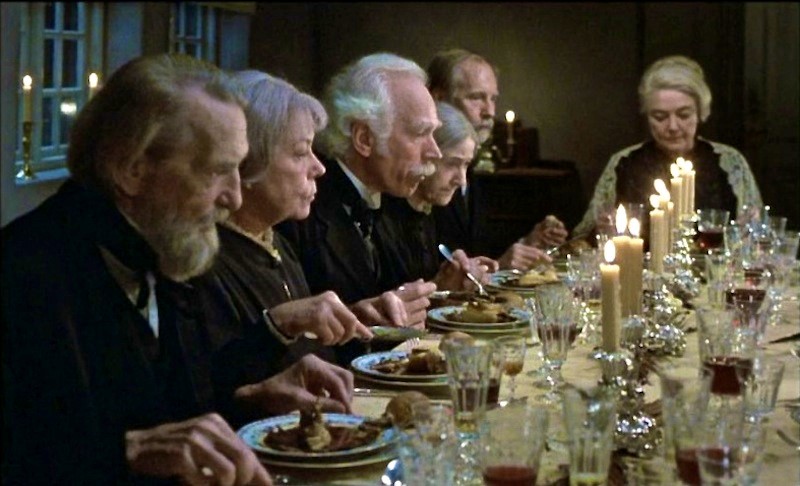
To listen to today’s reflection as a podcast, click here
Denmark has never been considered a center for global cinema.
Only a handful of Danish movies, in fact, have ever received an Academy Award.
But the first one to accomplish that – Babette’s Feast, winner of the 1987 Oscar for Best Foreign Language Film (based on a story by Danish writer Karen Blixen) – remains an international favorite even three and a half decades after its under-the-radar debut.
The story introduces us to two beautiful young sisters. Their father is the founder of his own stern religious group.
Its rules are hard and unbending. Life is not to be enjoyed. There must be no frivolity and no sensual pleasures.
Even though the sisters attract numerous suitors, their father drives them all away. They become elderly spinsters who continue to lead an ever-dwindling group of true believers as a way of preserving their father’s memory.
Then one rainy night in their Danish fishing village, a stranger arrives at their door. Her name is Babette. She is a refugee from war-ravaged Paris. She begs for their help, and they decide to take her in.
Babette becomes their housekeeper and cook. She serves them for 14 years, adding a few nice touches to the bland meals that have always been part of their religious discipline. Gradually she begins to win their trust.
One day Babette wins the lottery. She now has 10,000 francs, a remarkable sum. She decides she will treat the sisters and their congregation to a feast.
And not just any feast. It will be “a real French dinner,” as she puts it – a sumptuous, over-the-top, multi-course banquet, accompanied by the finest wines. She orders extraordinary ingredients that arrive in town one by one. She purchases new tablecloths, new cutlery, and new china. No one in the village has ever imagined anything like this.
And that’s the problem.
The sisters and their religious friends suspect this meal will be a sensual bridge too far. It might lead all of them into sin.
They reluctantly decide to attend the feast – that’s the polite thing to do, after all – but no one must be allowed to enjoy it. They agree that no mention will be made of the food.
Brant Hansen, in his book Unoffendable, describes what happens next: “They sit. They eat, slowly and suspiciously at first. They eye one another, making sure no one is enjoying this too much. But it’s too good. It’s all just too good. The setting, the atmosphere, the soup, the wine…it’s spectacular. Joy breaks out.”
Old wounds are salved. Ancient joys are rekindled. A spirit of hope and redemption settles over the table.
The guests are healed by Babette’s gifts. Only after the meal do the sisters discover her true identity. This stranger they have allowed to putter around in their kitchen for 14 years is one of Europe’s master chefs, renowned for her cooking at the Café Anglais in Paris.
Even more than that, they are healed by Babette’s self-sacrifice. The 10,000 francs were her ticket home, her chance to return to her old life. But she has spent every single franc on that single, insanely glorious meal. The feast was a gift. It was pure grace – a joyful act of appreciation from a grateful soul.
What can soften human hearts that have become fossilized by pettiness and pride?
Only grace can accomplish such a wonder.
Scripture pleads with us to see reality through grace-softened eyes: “Let us then approach God’s throne of grace with confidence, so that we may receive mercy and find grace to help us in our time of need” (Hebrews 4:16).
Notice that God rules from a throne of grace. Which is why we can approach him with confidence. And therefore face each new day with the expectation of receiving yet more grace.
Hansen suggests that most people who watch Babette’s Feast will find themselves wondering why these people can’t just relax and enjoy the incredible gifts they have been given.
Then he adds, “And maybe you’ll recognize yourself in them.”
